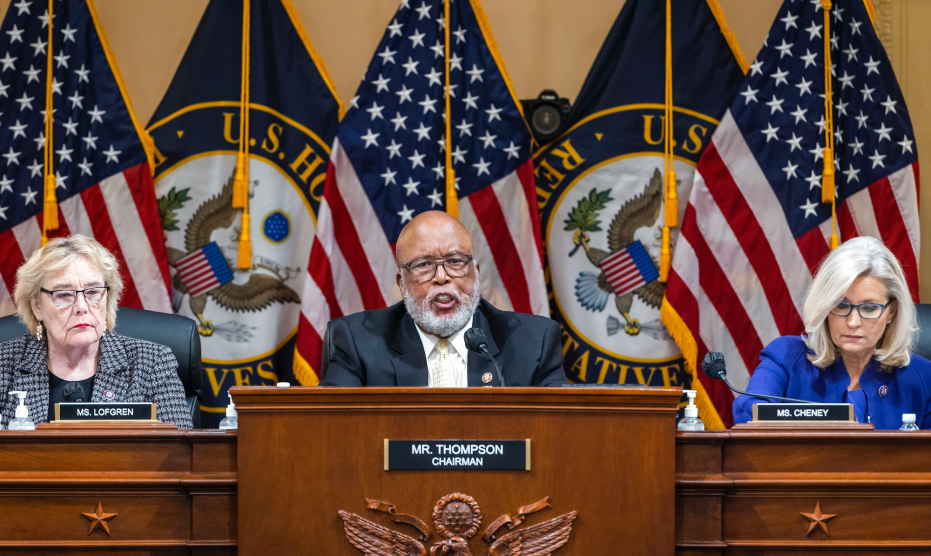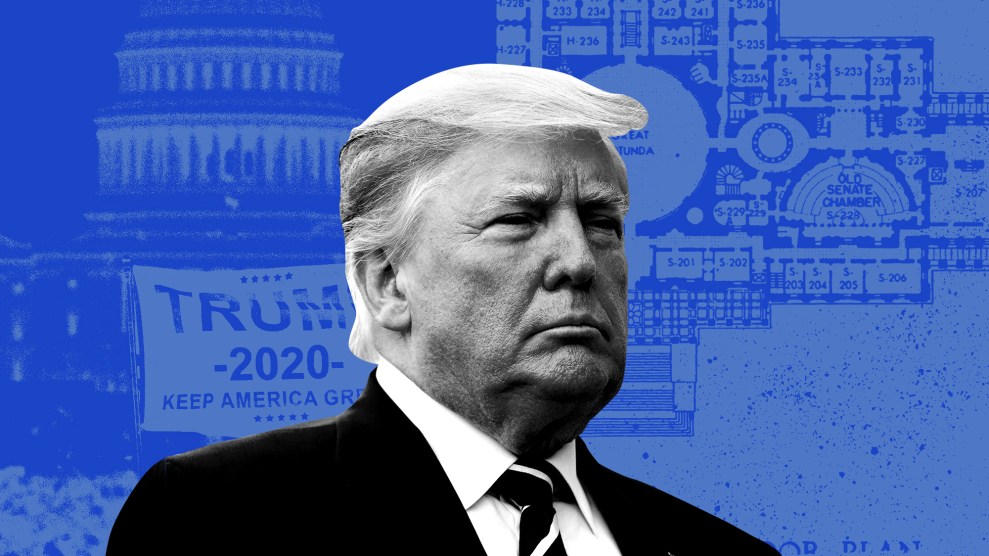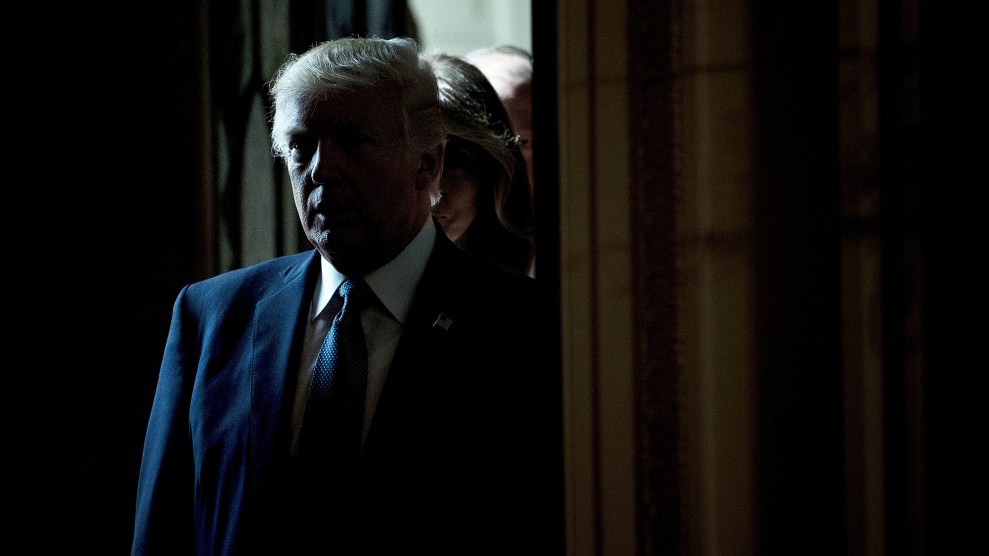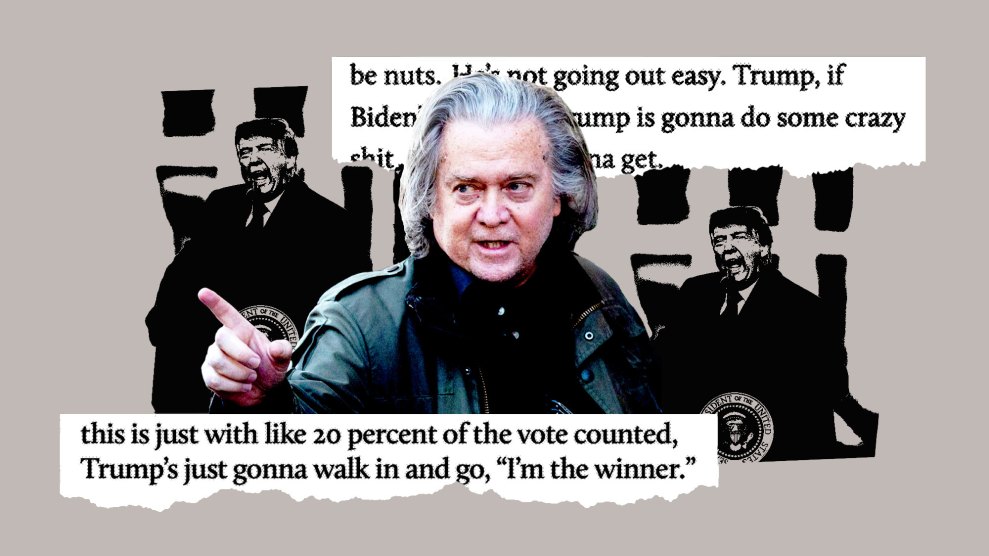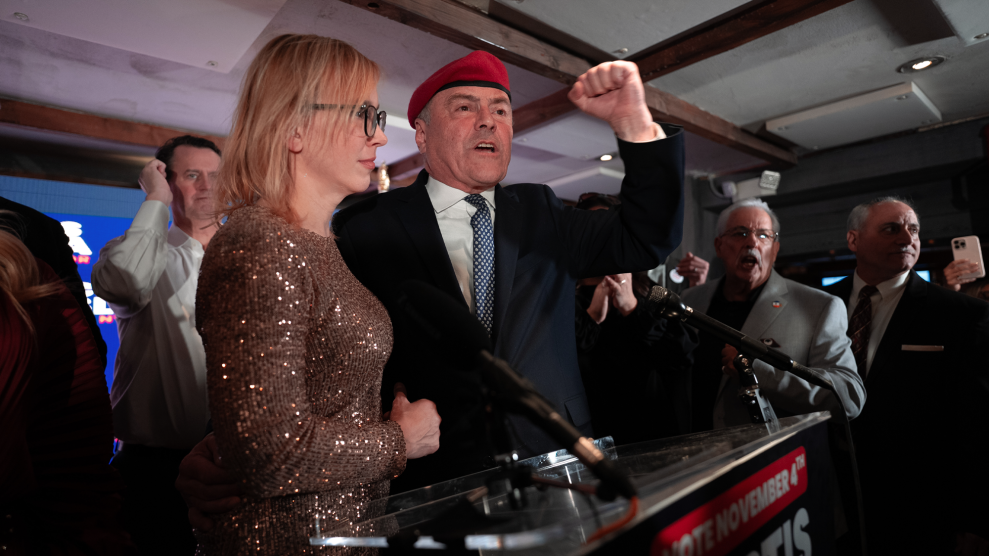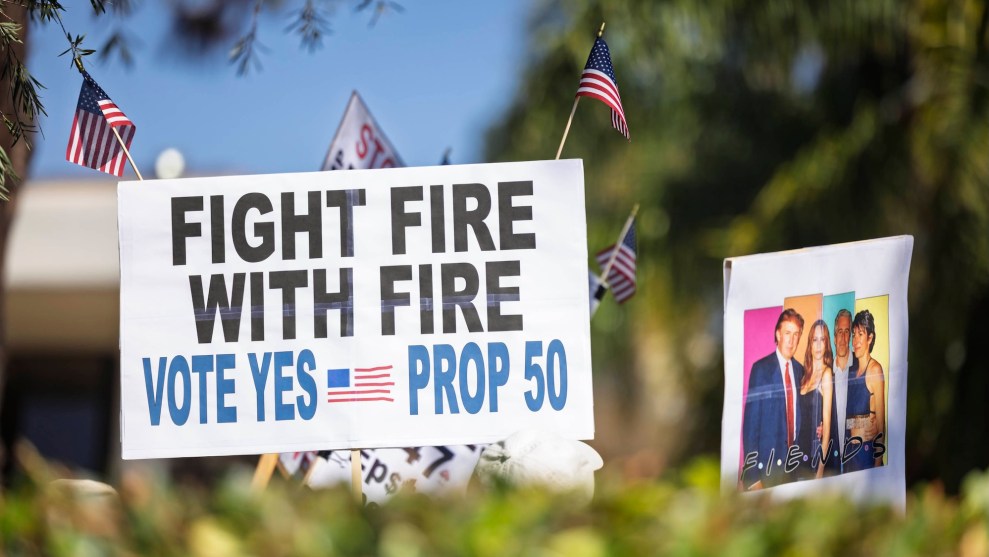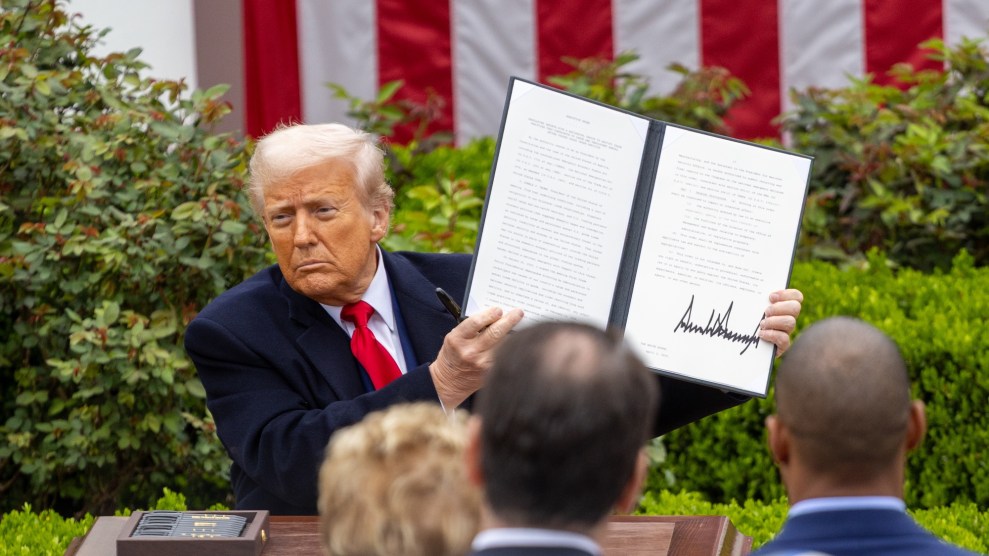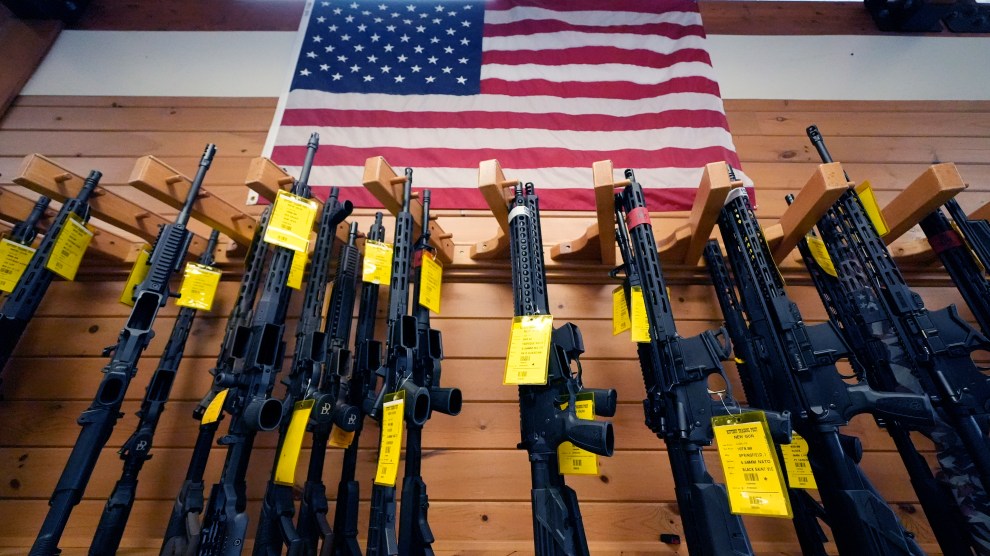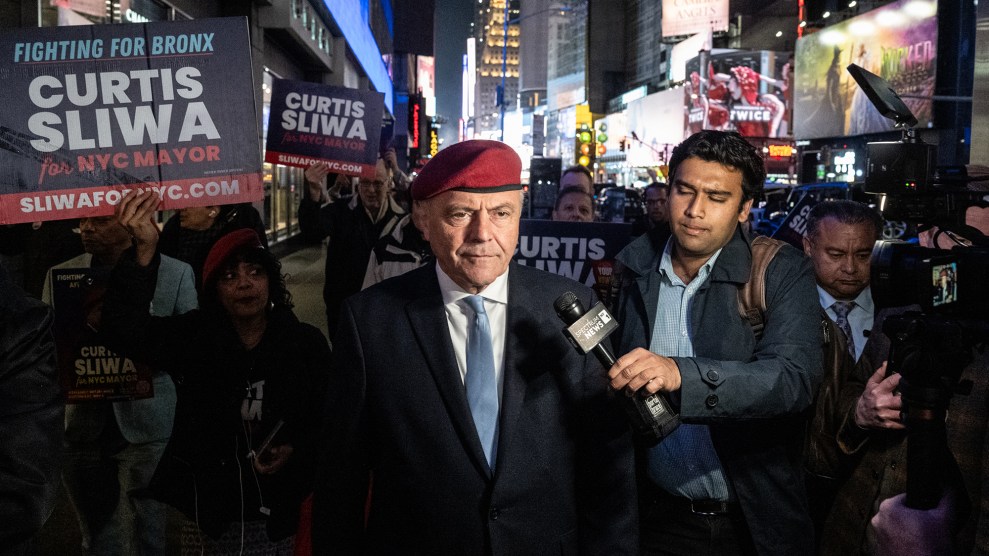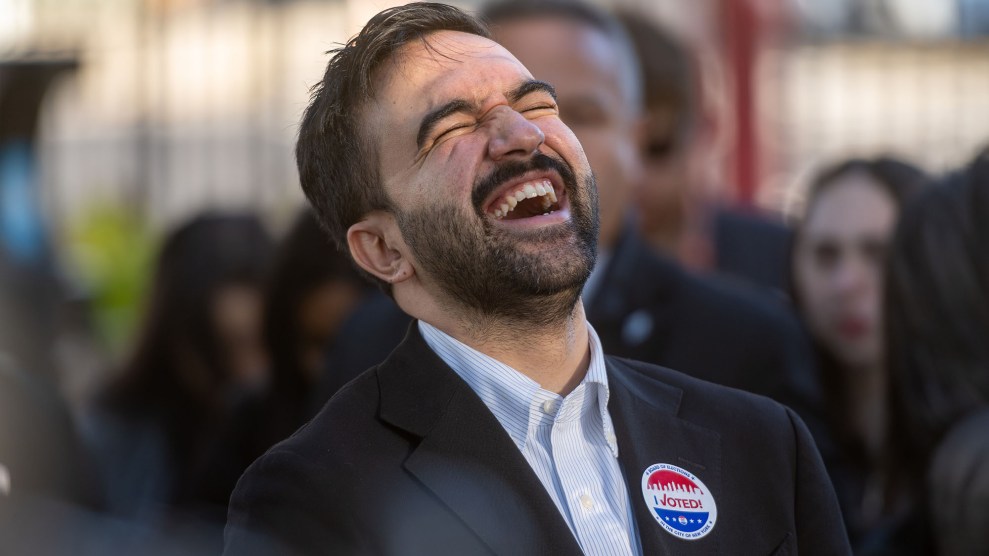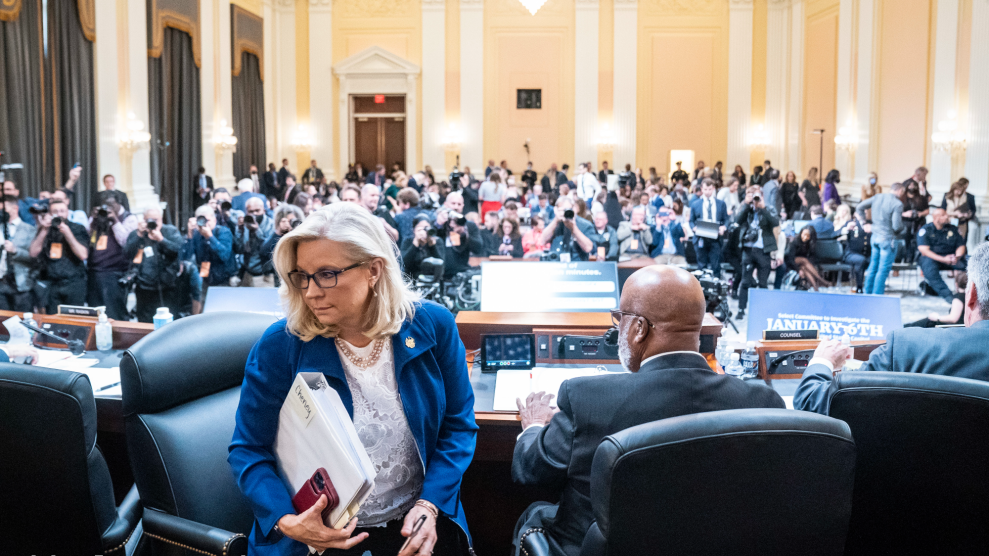
Liz Cheney and Bennie Thompson leaving an October 13 January 6 committee hearing.Jabin Botsford/Zuma
The January 6 committee’s final report has 845 pages and not a word against Mike Pence. The committee lauds the former VP and other top Trump administration figures for refusing to go along with Donald Trump’s attempted self-coup. But it does not address those same officials’ decision to remain silent about Trump’s lies for weeks after the election—a silence that helped the Stop the Steal movement grow from disorganized online conspiracy theories to a violent force that sacked the Capitol.
The committee is also gentle with the Capitol Police and other federal agencies involved in security, excusing their faulty preparation for January 6. “The President of the United States inciting a mob to march on the Capitol and impede the work of Congress is not a scenario our intelligence and law enforcement communities envisioned for this country,” the report’s executive summary says. “Prior to January 6th, it was unimaginable. Whatever weaknesses existed in the policies, procedures, or institutions, they were not to blame for what happened on that day.”
This argument, which appears throughout the committee’s report, is simply not credible. Law enforcement agencies may not have known precisely what Trump would say that day, but he had been repeating the same lies for weeks. And far-right groups were planning to march toward the Capitol even before Trump’s speech. Everyone knew they were coming.
These omissions represent decisions by the committee to pull their punches against individuals and entities whose conduct they wanted to contrast with Trump’s. The committee did that to maintain focus on Trump’s ultimate responsibility for his efforts to overturn a democratic election and for the violence and chaos that resulted. That may have made committee’s work more effective politically. But it sacrificed a more comprehensive, unsparing assessment of the causes of January 6, which included incompetence and complicity from some of the same institutions and individuals the committee praised. To produce what the New York Times called “a clean, uninterrupted narrative,” the committee left out the full, messy truth.
January 6 committee critics like Kevin McCarthy have faulted the panel for focusing “on political theater.” They’re not all wrong there, but they err by suggesting that’s necessarily a bad thing. Much of what Congress does is appropriately political theater. It’s politics for public consumption. The House and Senate have seats for spectators. Congressional oversight hearings occur in large part to communicate information to the public. They should be theater. The problem is not that lawmakers seek citizens’ attention. It’s that they often do it badly.
The January 6 committee provided the best political theater in recent memory. As the Times detailed last Friday, the committee succeeded in communicating its findings to Americans because its members embraced the necessity of doing so theatrically. They hired a veteran TV executive and a supporting team to produce their televised hearings. Those hearings consistently drew more than 10 million viewers, NFL-level numbers unheard of for lawmakers. Committee staff literally scripted the hearings, making members read off teleprompters, thus limiting the somniferous speechifying that saps energy from most congressional events. The panel used video to tell the story. And they hammered one point above all. “The central cause of January 6th was one man, former President Donald Trump, whom many others followed,” the report says—accurately—in its executive summary. “None of the events of January 6th would have happened without him.”
Making the case that Trump should not return to the White House was the committee’s primary goal, as its dominant vice chair, Rep. Liz Cheney (R-Wyo.) made clear. “No man who would behave that way at that moment in time can ever serve in any position of authority in our nation again,” Cheney said at a committee hearing last week. The committee showed that Trump lied about his 2020 election loss as part of a premeditated plan to use bogus election fraud claims to try to stay in office. They pointed out that Trump’s lies and incitement of violence were not simply dumb tweets, but an unprecedented refusal “to transfer power peacefully,” as Cheney wrote in the committee’s report.
This effort from the committee was apparently successful. The hearings likely contributed to voters’ rejection of candidates who embraced Trump’s Big Lie in the 2022 midterms. And the panel may well also have succeeded in hurting Trump’s chances of returning to the White House in 2025. Trump’s approval ratings and betting odds of winning the GOP nomination dipped as the panel did its work.
But the panel’s mandate was bigger than Trump. The committee’s official charge was to “investigate and report upon the facts, circumstances, and causes relating to” the January 6 attack. Pointing out Trump’s responsibility was certainly a key part of that job. But the members were also asked to investigate the “facts and causes relating to the preparedness and response of the United States Capitol Police and other Federal, State, and local law enforcement agencies.”
That mandate has conflicted with the panel’s effort to damn Trump. Since its first hearing in 2021, which featured testimony from officers who battled rioters on January 6, the committee has highlighted the heroism of police. They’ve done that because the narrative of heroic cops battling rioters dispatched by Trump works politically. But the committee has proved reluctant to complicate that story by dwelling on the errors of even high-level law enforcement leaders. As various outlets have reported, Cheney believed that focusing on law enforcement mistakes would distract from Trump’s responsibility for the attack. Her view became the panel’s, and the report relegated to an appendix findings from a team of investigators that examined law enforcement failures. At Cheney’s urging, the committee’s report also excluded or limited findings from teams that looked into militia groups and extremism and financing for the attack.
When staffers angry about that decision ripped Cheney in anonymous leaks in November, her spokesperson, Jeremy Adler, made it clear that Cheney was wary of shifting the focus from the former president. “Donald Trump is the first president in American history to attempt to overturn an election and prevent the peaceful transfer of power. So, damn right Liz is ‘prioritizing’ understanding what he did and how he did it and ensuring it never happens again,” Adler told the Washington Post. He added: “She won’t sign onto any ‘narrative’ that suggests Republicans are inherently racist or smears men and women in law enforcement, or suggests every American who believes God has blessed America is a white supremacist.” Adler didn’t respond to Mother Jones‘ questions.
The report’s appendix does state that police and federal agencies failed to act on evidence of violent plans by Trump backers. “Federal and local law enforcement authorities were in possession of multiple streams of intelligence predicting violence directed at the Capitol prior to January 6th,” it says. “Although some of that intelligence was fragmentary, it should have been sufficient to warrant far more vigorous preparations for the security of the joint session.”
But there, and elsewhere, the committee foregoes a more searching analysis by suggesting that everyone “lacked the imagination to suppose that a President would incite an attack on his own Government.” That same claim is featured as one of the committee’s key findings. Intelligence and law enforcement agencies, it says, “did not (and potentially could not) anticipate the provocation President Trump would offer the crowd in his Ellipse speech, that President Trump would ‘spontaneously’ instruct the crowd to march to the Capitol, that President Trump would exacerbate the violent riot by sending his 2:24 p.m. tweet condemning Vice President Pence, or the full scale of the violence and lawlessness that would ensue.”
Trump’s defenders, to be sure, have tried to use security failures to excuse his conduct. But the problem with saying that law enforcement “potentially could not” anticipate Trump’s incitement is that it is obviously false. That claim is belied by his tweets in preceding days. On January 5, Trump tweeted that Pence had the power to reject electors and also remarked on the large crowd converging on DC in a clear effort to pressure the vice president and Congress. “Washington is being inundated with people who don’t want to see an election victory stolen by emboldened Radical Left Democrats,” Trump tweeted. “Our Country has had enough, they won’t take it anymore!” Organizers of the Ellipse rally had made fully public their plans to march to Congress after the address. Trump’s encouragement surely made things worse, but law enforcement had every reason to expect an angry crowd was headed to Congress that day.
Trump entered January 6 as a guy who had told the Proud Boys to “stand back and stand by,” had routinely attacked federal intelligence and law enforcement agencies, had praised white supremacists after Charlottesville, and had never admitted that he legitimately lost the popular vote in 2016. But if you were among millions of Americans who saw January 6 as more of a continuation than a departure for him, then you differ from Liz Cheney. Cheney, of course, was an outspoken Trump ally until she broke with him over his refusal to accept defeat in 2020. She was an acerbic foe of Democrats’ impeachment of Trump in 2019 over his efforts to extort Ukrainian President Volodymyr Zelenskyy for political favors. In 2020, she served not only as GOP caucus chair but, reportedly, as a Trump Victory Finance Committee congressional “co-captain” and chair of his campaign in Wyoming.
Given that background, it is hard to avoid speculating that the dubious idea that Trump’s actions on January 6 were unimaginable is Cheney’s. But regardless, that perspective infuses the report and may inform the committee’s mostly laudatory treatment of GOP officials who went along with Trump election fraud lies for far too long.
“We are fortunate for Mr. Pence’s courage on January 6,” the committee’s chair, Bennie Thompson (D-Miss.), said at a hearing in June. “Vice President Pence, along with many of the appointed officials who surrounded Donald Trump, worked to defeat many of the worst parts of Trump’s plan to overturn the election,” Cheney says in her forward to the report. It is possible to compliment Pence’s refusal to carry out a coup on the House floor while also questioning his conduct leading up to the insurrection. The committee, however, did not do so.
We're going to keep fighting until every legal vote is counted and every illegal vote is thrown out! And we will never stop fighting to MAKE AMERICA GREAT AGAIN! 🇺🇸 pic.twitter.com/2cohWYxJeA
— Mike Pence (@Mike_Pence) December 11, 2020
The report offers particularly sympathetic treatment to former Attorney General Bill Barr. Prior to the election, Barr echoed some of Trump’s lies, falsely claiming that allowing mail voting increases fraud. Immediately after the election, Barr appeared to respond to Trump’s pressure by ordering the DOJ to investigate claims of fraud in the 2020 election, “even in the absence of evidence,” as the report notes. That broke with a DOJ policy of refraining from substantive investigations until after election results were certified, a policy aimed at preventing any appearance of the department attempting to influence results. Critics charged that Barr had bent to Trump’s will, using DOJ resources to probe baseless claims that Barr himself later described as “idiotic” and “bullshit.” The department’s top prosecutor for election crimes, Richard Pilger, stepped down in response to Barr’s order. But the report, relying heavily on Barr’s own account, does not fault Barr’s order. It largely accepts his version of events. (The report’s fourth chapter is told largely from Barr’s perspective.) The former AG suggested that by using DOJ investigators to look into fraud claims he was preparing himself to tell Trump his claims were false.
On December 1, 2020, Barr told the Associated Press that the DOJ had not seen not seen “fraud on a scale that could have effected a different outcome in the election.” That announcement enraged Trump and led to Barr’s resignation, and it receives extensive attention from the committee. But the report does not delve into why Barr waited until nearly a month after Election Day to counter Trump’s lies, despite his own statements that he had never bought into Trump’s claims and had determined by mid-November that there was no evidence of election fraud.
As NBC News’ Ryan Reilly has pointed out, while Barr was not speaking up, the Stop the Steal movement took off. The so-called “Million MAGA March” on November 14 was a key moment. And it’s not just Barr. The committee has highlighted the decisions of GOP figures like Senate Minority Leader Mitch McConnell (R-Ky.) to acknowledge Biden’s win in mid-December, after the Electoral College made his victory official. But unlike McConnell, a few Republicans—following normal practice—had congratulated Biden on his win after the AP and networks called the contest on November 7. The committee does not address the extent to which the weeks-long delay by most Republicans, who apparently feared angering Trump, lent plausibility to the defeated president’s false claims and emboldened the movement that ultimately attacked the Capitol.
Pence is the prime example. His refusal to bow to Trump’s pressure on January 6 deserves note. But so does his behavior over the preceding two months. Even in his much-celebrated statement shortly before the riot, in which he refused to unilaterally overturn the results, Pence falsely suggested that the election had been compromised by “irregularities” and a “disregard for state election statutes,” and he said he welcomed the objections that Republican lawmakers like Ted Cruz and Josh Hawley planned to raise during the certification process.
The committee certainly had its reasons for lionizing figures like Pence and Barr. For one thing, rewarding cooperation helps encourage others to talk. While Pence eventually declined to speak to the panel, and even attacked it as partisan, many of his top aides cooperated extensively. Probably more importantly, highlighting how even longtime Trump loyalists broke with him over his election fraud claims helped the committee show how disgraceful Trump’s actions were. And people like Barr and the roster of mostly Republican witnesses the panel relied on served as validators to convince right-leaning voters that Trump went too far.
That is probably good politics. It worked. But Republican complicity, before and after Election Day, required unstinting examination, too. So did the inadequate preparations of the Capitol Police and others. The committee punted on those tasks, to better focus on Trump. That left them short of the whole truth. It’s good that Mike Pence and others declined to join the ultimate coup attempt. But that is a low bar for leaders of American government. The January 6 committee should have asked more of them. And Americans should expect more of the committee.

